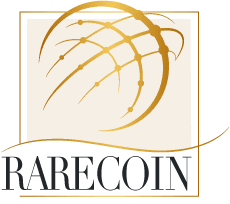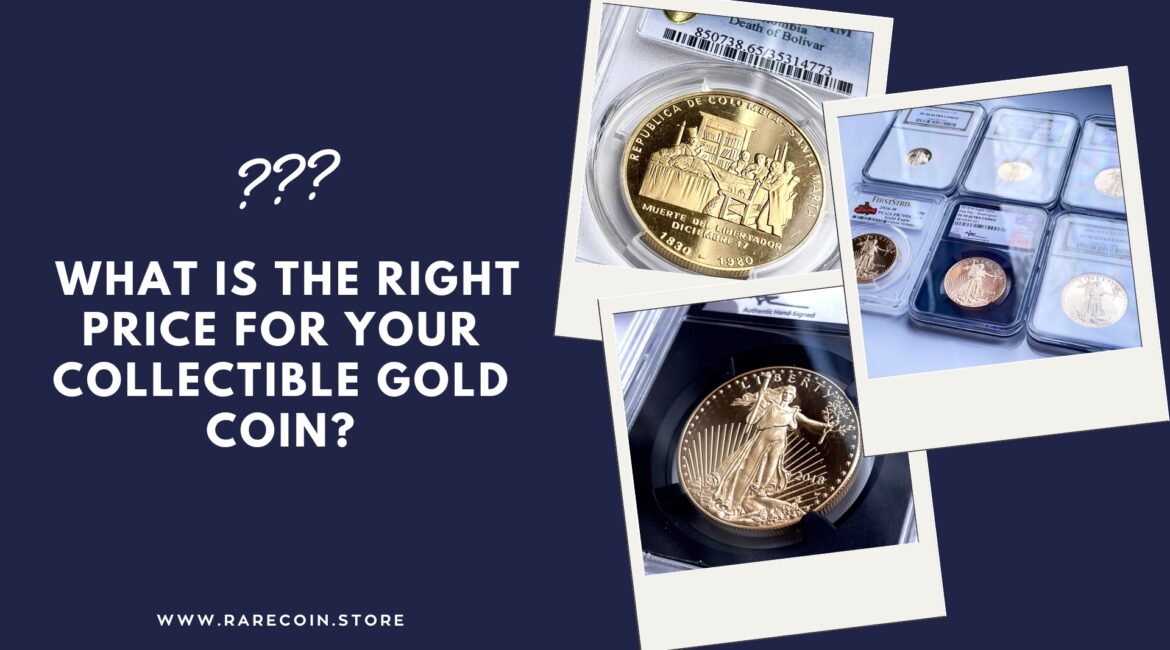What is the right price for your gold collector coin?
The challenge of fair value
So, you have finally found the perfect gold coin for your collection. It ticks all the boxes – the right coin, the right grade, the right look and seemingly everything else fits. But then comes the inevitable pause when you look at the price tag and ask yourself, “Is the price justified? How much should I actually pay for this coin?”
Art or Science?
Determining the fair value of a collectible gold coin is more art than science. It’s a skill that challenges even experienced numismatists. The diverse ways people value coins contribute to the dynamic nature of the market and allow many to make a living by buying and selling them. Even for coin dealers, determining the value of a coin can be challenging. We often receive calls from other dealers seeking our expert opinion on the market price of a coin. They then use this information to value the coin accordingly in their own stores.
Resources and methods
In our digital era, we are fortunate to have a wealth of resources for valuing coins. However, not all sources are equal. Relying on inaccurate or outdated information can result in you overpaying for inferior pieces or selling valuable pieces below value. Therefore, knowing where to find reliable, up-to-date information and how to interpret it correctly is crucial to successfully building a robust coin collection.
Tips for determining the right price
Research, research, research
Take the time to thoroughly research the coin you are interested in. Explore their historical significance, mintage numbers, rarity, and current market trends. Use reputable numismatic resources such as auction records, price guides and expert opinions.
Comparison portals
In Germany, for example, there is an online portal called gold.de , which lists numerous reputable gold dealers. Using the filter options, you can select the specific coins you are interested in and the portal will show you all the dealers offering these coins along with their buying and selling prices. Such websites are invaluable for getting an overview of the value of different coins.
Consult multiple sources
Don’t rely on just one source for pricing information. Compare prices on various platforms, including online auctions, dealer websites and numismatic publications. This gives you a more complete understanding of the coin’s market value.
Consider the COA and original packaging
The presence of a Certificate of Authenticity (COA) and the original packaging is of great importance to many collectors, especially if they are in good condition. Coins containing these items tend to be more desirable. However, keep in mind that coins sold exclusively in capsules, even if they originally came with a COA and the original packaging, should be valued slightly lower. Ideally this should be the case, but unfortunately this is not always the reality in the world of numismatics. It is worth noting that some coin dealers may sell coins without the COA and original packaging for the same price as those with. Therefore, buyers should exercise caution and be aware of this practice. However, if a coin is professionally graded and encapsulated, the COA and original packaging are not as important as the graded coin pod/slab itself has more value to certain collectors.
Consider the grading and condition
The condition of a coin has a significant impact on its value. Coins that have been professionally graded and certified by reputable grading agencies such as NGC or PCGS tend to fetch higher prices. Pay attention to factors such as wear, scratches, and toning as these can affect the collectible value and price of the coin.
Consider markups and fees
Be aware of any surcharges or fees when buying or selling a coin. These may include dealer markups, auction buyer’s premiums, shipping costs and customs fees. Factor these additional costs into your budget when determining how much you want to pay for a coin.
Trust your instincts
Ultimately, trust your instincts when assessing a coin’s value. If something sounds too good to be true or doesn’t feel right, it’s okay to walk away. Patience is the key to building a quality coin collection, so don’t rush into transactions without careful consideration.
Conclusion
By following these tips and sharpening your skills in evaluating collectible gold coins, you will be better equipped to make informed purchasing decisions and build a collection that has both intrinsic and monetary value.
Maybe these blogs are also interesting for you:






